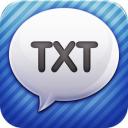What Types of Messaging Shift Health Behaviors?
Many types of behavior change programs end up relying on communication or messaging to do a lot of the work. The right type of messaging can make all the difference. In cognitive design we have long advocated change messaging that is short, just-in-time, emotionally positive and behavior-specific (tell me exactly what to do). Knowledge cards, a small-step behavior change program, are designed to follow precisely that prescription.
Interesting new research from the University of Michigan supports and extends this idea. The study focused on the impact of text messages sent to mobile phones to help Teens manage their weight. Not surprising they found that specific instructions from peers and sincere positive encouragement were preferred. They also found:
“Other negative response came from the mention of unhealthy food and behavior, even with references to healthier options; Teens began to crave unhealthy foods after being asked about them. Reflective questions, like “What does being healthy mean for you? How does screen time fit in with your goals? How could cutting back on it help improve your health? were also ineffective.”
It is not clear if the preferred messages will actually cause behavior change. It is clear those that are not preferred or even disliked will not. This is an important finding because we sometimes design communications in change programs to invoke comparative and reflective thinking. While that is critical for some applications it will clearly backfire for others.

December 28th, 2014 at 1:57 am
celine uk online sale…
This woman is a child using a model, but given the fact that his eatery in NY fails and he isn’t a Fruits kicks him right to the contour.Of panache, the equipment Aubry conveys to Access Public figure last This the he was ready the disparaging offer.O…